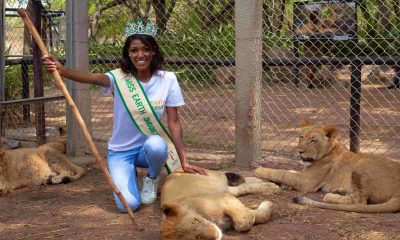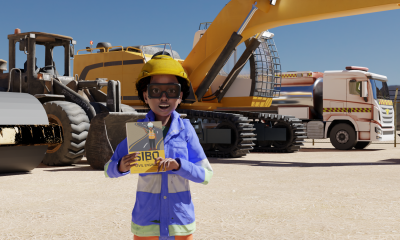Interview
Interview with Hey Hey Preacher | Inspiration for Writing Panze
We interviewed Hey Hey Preacher on the piece, Panze, to find out his inspiration to writing such an amazing and powerful piece. Read the interview as he explains the poem in detail, his inspiration, gives advice on how to use poetry as an outlet for pain, read the extract, and see what you might have missed from the poem panze.
Published
4 years agoon
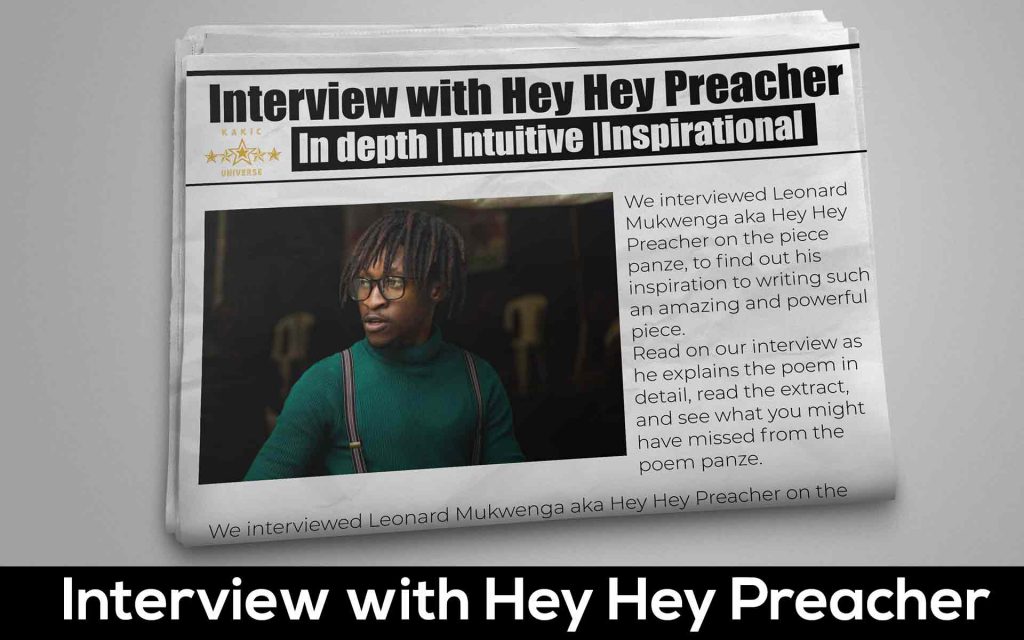
Interview with Hey Hey
We sat down with the brilliant wordsmith behind the masterpiece that is Panze, Leonard Mukwenga a.k.a The Hey Hey Preacher just to ask him a few questions about the piece and more. If you haven’t watched the video make sure you do so, check the link below, if you have, you can continue with the article and read on the interview:
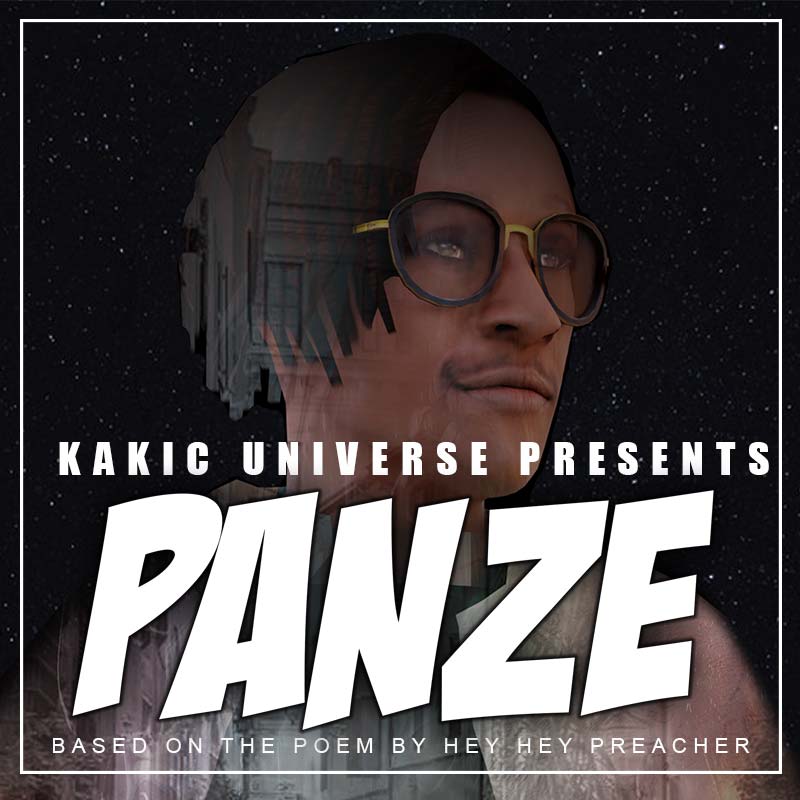
Panze- The Effects of the lockdown
Lockdown has brought some devastating effects on some of the people of Zimbabwe. Watch this animated video based on the poem, “Panze” which touches on some of those effects. Panze was written by Hey Hey Preacher, a Zimbabwean contemporary hip hop and spoken word artist. See more
Click the link below to watch Panze
Panze- The Effects of the lockdown
Lockdown has brought some devastating effects on some of the people of Zimbabwe. Watch this animated video based on the poem, “Panze” which touches on some of those effects. Panze was written by Hey Hey Preacher, a Zimbabwean contemporary hip hop and spoken word artist. See more
The Interview
Question: First and foremost, what inspired you to write such an amazing piece?
Hey Hey: The pandemic hit the entire world in a devastating manner. And no one saw it coming, or let me say, I did not. That being said, when lockdown was then instituted, it felt like a prison sentence. Unusual, I know. Who wouldn’t want a long vacation staying at home? Well, me. When your entire homestead is a simulacrum of an Afghanistan war, you often need sometime away, to breathe. This is what I loved about my job. How therapeutic it was. It helped me cope with what was happening at home. But well, no matter how much time you spend running, life has a way of bringing you right back to where you started, to face your demons. The first two weeks of lockdown were hell. I felt suffocated. There was nowhere to go. And as you might have guessed I suffered from anxiety. What helped me in that situation was, reminiscence. I thought about what life was like when I could go out, go to work and or meet with friends. I remember I went into a deep state of meditation in which words began to flood my mind. I had personified, outside (panze), and I began telling him that I had missed him. Without him I felt void in my life – sezino rabva. I began to write about everything I missed. My girlfriend, and our favourite dinning spot. I dug in deeper into the damage lockdown was causing to Zimbabwean people and in no time, I had written an entire poem: Panze.
Question: Now lets decode the poem for those who are not as fluent in shona as you are, what did you mean by mviro mviro dzemhanza mapfeka iwo asuwa kupuruzirwa in the context of your poem?
Hey Hey: Mviro mviro dzemhanza mapfeka – is a Shona proverb which translates to: The bald head is just the end result, it’s coming, its long predicted by the shape of the hair. This means: Nothing happens all of a sudden. There are always signs that we ignore sometimes. I used this proverb in my poem and added text to it, ‘mviro mviro dzemhanza mapfeka, iwo asuwa kupuruzirwa’. The imagery I was painting here was a foreseen future. In which I get old, stuck at home, in the absence of a gentle touch from my loved one, because lockdown separated us. I foresaw a future in which I get old, alone.
Question: First and foremost, what inspired you to write such an amazing piece?
Hey Hey: The pandemic hit the entire world in a devastating manner. And no one saw it coming, or let me say, I did not. That being said, when lockdown was then instituted, it felt like a prison sentence. Unusual, I know. Who wouldn’t want a long vacation staying at home? Well, me. When your entire homestead is a simulacrum of an Afghanistan war, you often need sometime away, to breathe. This is what I loved about my job. How therapeutic it was. It helped me cope with what was happening at home. But well, no matter how much time you spend running, life has a way of bringing you right back to where you started, to face your demons. The first two weeks of lockdown were hell. I felt suffocated. There was nowhere to go. And as you might have guessed I suffered from anxiety. What helped me in that situation was, reminiscence. I thought about what life was like when I could go out, go to work and or meet with friends. I remember I went into a deep state of meditation in which words began to flood my mind. I had personified, outside (panze), and I began telling him that I had missed him. Without him I felt void in my life – sezino rabva. I began to write about everything I missed. My girlfriend, and our favourite dinning spot. I dug in deeper into the damage lockdown was causing to Zimbabwean people and in no time, I had written an entire poem: Panze.
Question: Now lets decode the poem for those who are not as fluent in shona as you are, what did you mean by mviro mviro dzemhanza mapfeka iwo asuwa kupuruzirwa in the context of your poem?
Hey Hey: Mviro mviro dzemhanza mapfeka – is a Shona proverb which translates to: The bald head is just the end result, it’s coming, its long predicted by the shape of the hair. This means: Nothing happens all of a sudden. There are always signs that we ignore sometimes. I used this proverb in my poem and added text to it, ‘mviro mviro dzemhanza mapfeka, iwo asuwa kupuruzirwa’. The imagery I was painting here was a foreseen future. In which I get old, stuck at home, in the absence of a gentle touch from my loved one, because lockdown separated us. I foresaw a future in which I get old, alone.

Question: I see i see, and this ties in to the part where you say “Ndinombonzwa kuti ndinikarikoga akasiya jira kumasese, nekuti kana usipo hupenyu hwangu ichando correct?
Hey Hey: Exactly, you are spot on!
Question: But who is karikoga and what does that phrase mean exactly?
Hey Hey: There’s a Shona proverb again which says: Zano ndoga, akasiya jira kumasese.
Meaning: people who forsake warnings and advice often fall in into calamity. I had been told to marry and In a way I regretted having to delay. Because if I had done so, I would not have been alone during lockdown. Hahaha, however, I have a habit of ‘pimping proverbs’ when I write poetry. I removed ‘zano ndoga’ and replaced it with ‘Karikoga’. Because;
1) Karikoga is one of my favourite fictional characters from the book Karikoga Gumiremiseve. I always liken myself to a warrior who fights for what he believes in.
2) Karikoga generally translates to: someone who is always alone. Someone who was dumb enough to get drunk at the beer hall and forgot his jacket. Jacket here symbolising my girlfriend, who is my warmth.
Masese is a locally made alcohol in Zimbabwe also known as Scud or super.
Question: Now you also talk about domestic violence and how it’s been on the rise with families being forced to stay indoors together, Its Quite unfortunate really, Earlier u mentioned that u got into a “mood”, or rather u meditated and u began writing this piece. What advice can you give to people who want to also turn their pain, their affliction into something profound like this poem.
Hey Hey: Okay, first of all, let me say this, I don’t understand your pain and the situation you’re in right now. Only you do. I cannot promise you healing nor a solution but hear me when I say this: it does get better. And when it does, you’ll hate yourself for failing to keep a souvenir. Something that reminds you of all that you conquered. Because you will conquer the battle you’re facing now during lockdown. At the very least, you owe it to yourself to document it, write about it, how you’re feeling. For poetry, it can be an excellent outlet. And when you have an outlet this means you do not harbour emotions, thus, you’re stable and a person of sound mind.
Question: One Of the things we loved about the poem was how fluent you were with Shona and your amazing use of vernacular proverbs. Do you like have a library somewhere where you keep these proverbs, or you’ve gone through a lot of local literature?
Hey Hey: No Library! I just love reading Shona books and novels. I have been, since High School, that’s why I am a bit knowledgeable in that regard. My mother is a Shona guru as well so most of the proverbs i use, I learnt them from her.
Question: Which one was your favourite scene?
Question: I see i see, and this ties in to the part where you say “Ndinombonzwa kuti ndinikarikoga akasiya jira kumasese, nekuti kana usipo hupenyu hwangu ichando correct?
Hey Hey: Exactly, you are spot on!
Question: But who is karikoga and what does that phrase mean exactly?
Hey Hey: There’s a Shona proverb again which says: Zano ndoga, akasiya jira kumasese. Meaning: people who forsake warnings and advice often fall in into calamity. I had been told to marry and In a way I regretted having to delay. Because if I had done so, I would not have been alone during lockdown. Hahaha, however, I have a habit of ‘pimping proverbs’ when I write poetry. I removed ‘zano ndoga’ and replaced it with ‘Karikoga’. Because;
1) Karikoga is one of my favourite fictional characters from the book Karikoga Gumiremiseve. I always liken myself to a warrior who fights for what he believes in.
2) Karikoga generally translates to: someone who is always alone. Someone who was dumb enough to get drunk at the beer hall and forgot his jacket. Jacket here symbolising my girlfriend, who is my warmth.
Masese is a locally made alcohol in Zimbabwe also known as Scud or super.
Question: Now you also talk about domestic violence and how it’s been on the rise with families being forced to stay indoors
together, Its Quite unfortunate really, Earlier u mentioned that u got into a “mood”, or rather u meditated and u began writing this
piece. What advice can you give to people who want to also turn their pain, their affliction into something profound like this poem.
Hey Hey: Okay, first of all, let me say this, I don’t understand your pain and the situation you’re in right now. Only you do. I
cannot promise you healing nor a solution but hear me when I say this: it does get better. And when it does, you’ll hate yourself for
failing to keep a souvenir. Something that reminds you of all that you conquered. Because you will conquer the battle you’re facing
now during lockdown. At the very least, you owe it to yourself to document it, write about it, how you’re feeling. For poetry, it can be
an excellent outlet. And when you have an outlet this means you do not harbour emotions, thus, you’re stable and a person of sound
mind.
Question: One Of the things we loved about the poem was how fluent you were with Shona and your amazing use of vernacular
proverbs. Do you like have a library somewhere where you keep these proverbs, or you’ve gone through a lot of local literature?
Hey Hey: No Library! I just love reading Shona books and novels. I have been, since High School, that’s why I am a bit knowledgeable
in that regard. My mother is a Shona guru as well so most of the proverbs i use, I learnt them from her.
Question: Which one was your favourite scene?
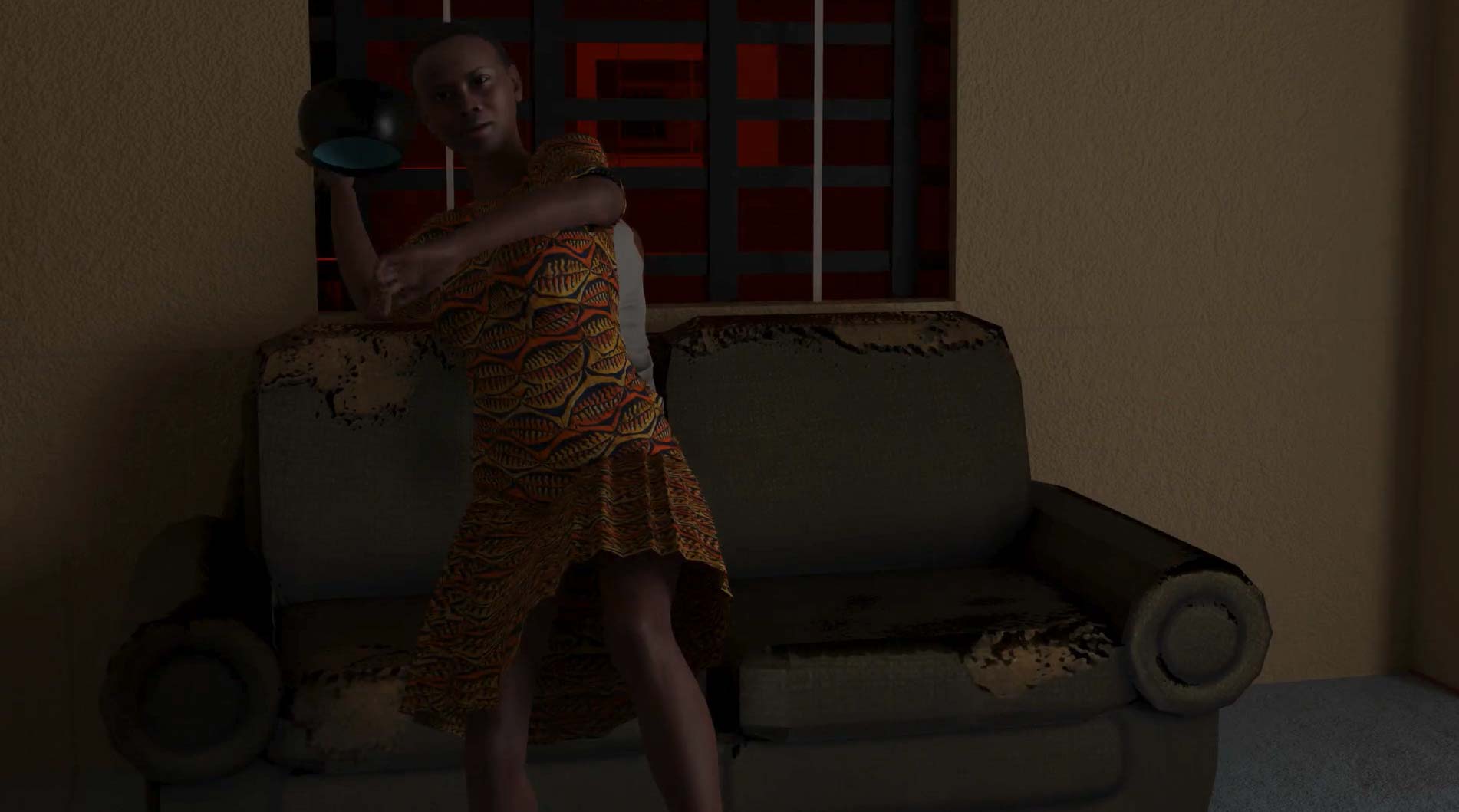
Hey Hey: When the mom comes out of nowhere and makes super cool landing that was epic! And the way she throws the pot. That scene has beautiful chaos and the way it correlates with the instrument is magical.
Question: Yeah, that scene was pretty intense
Hey Hey: The child bro! The child, you won my heart with the child!
Question: Thank you very much for being here! It was an honour working with you!
Hey Hey: The honour was mine, hope to collaborate with you guys in future again!
Hey Hey: When the mom comes out of nowhere and makes super cool landing that was epic! And the way she throws the pot. That scene has beautiful chaos and the way it correlates with the instrument is magical.
Question: Yeah, that scene was pretty intense
Hey Hey: The child bro! The child, you won my heart with the child!
Question: Thank you very much for being here! It was an honour working with you!
Hey Hey: The honour was mine, hope to collaborate with you guys in future again
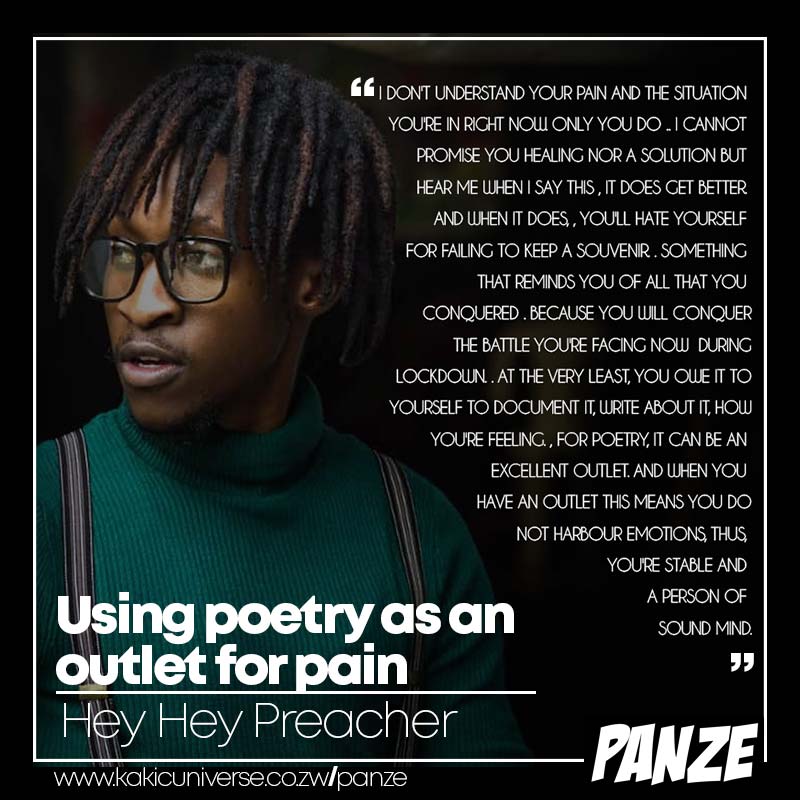
More articles on Panze

earground Features Panze!
We sat down with the author of this brilliant piece and asked him to share on what inspired him to write such a piece, to decode the poem and also his favourite scene
earground Features Panze!
We sat down with the author of this brilliant piece and asked him to share on what inspired him to write such a piece, to decode the poem and also his favourite scene

Panze featured on the news!
Our Video was featured on the news! Watch the clip here!
Panze featured on the news!
Our Video was featured on the news! Watch the clip here!








